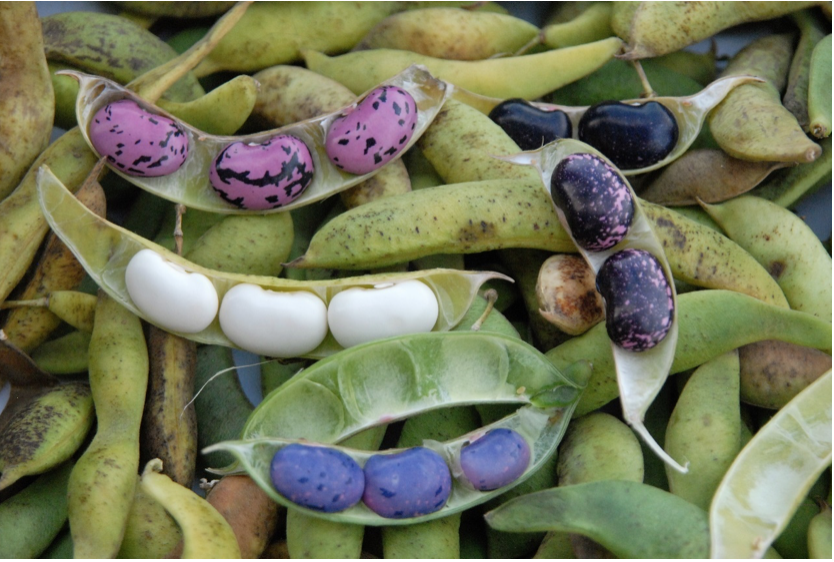Crop: Phaseolus coccineus L. (Runner bean )
The landrace called ‘Virágbab’ used as dried bean, is cultivated in Siófok (Balaton lake region, Hungary) by a few farmers in small, separate fields for at least 5 decades.
The landrace is a vigorous climbing type, needs a long season. It is sown in mid-April. It is flowering from June and keeps flowering till the first frost. The pods (8-10 cm) are growing individually or in pairs and have 5-7 seeds/pod. The seeds have different colour, from white to striped dark purple. Harvesting is done 3 times/year with a yield of 1,5 kg/m. It has a strong climbing ability, thus needs high poles to sustain the plants.
Cultivation System: organic, low-input.
Geographical Information
Country: Hungary
‘Virágbab’ bean is traditionally cultivated in the municipality of Siófok (Balaton lake Region, Hungary). The landrace is cultivated in small separated fields, for a total of a few hundred square meters.
Farmer(s) description:
The farmers cultivating ‘Virágbab’ bean are individuals, they do not belong to any network or organisation. They are producing for the local farmers’ market.
Propagation system: Seed, cross-pollination
Multiplication procedures and consequences on landrace diversity:Runner bean is a predominantly self-pollinating plant, but crosses do occur where presence of insects is high. Each farmer multiplies his own seed. The average number of plants multiplied by each farmer each year ranges from hundreds to a few thousands. At harvesting, each farmer selects seeds that will be used for the next season. The farmers save the first pods which were set on the plants for the next year in order to minimise contamination by cross-pollination.
Management plan existence:The landrace management relies completely on farming activities in the area.
Added Values
It has a local niche market due to its chestnut taste and very limited production. It is sold on the local market and to local restaurants.
Others (e.g. commercial/geographical brands or special traits):Local speciality.
The stable local market gives hope of on-farm conservation in the next future.
Centre for Plant Diversity www.nodik.hu
Case study prepared by The Hungarian Research Institute of Organic Agriculture (ÖMKi), Hungary
ND.
